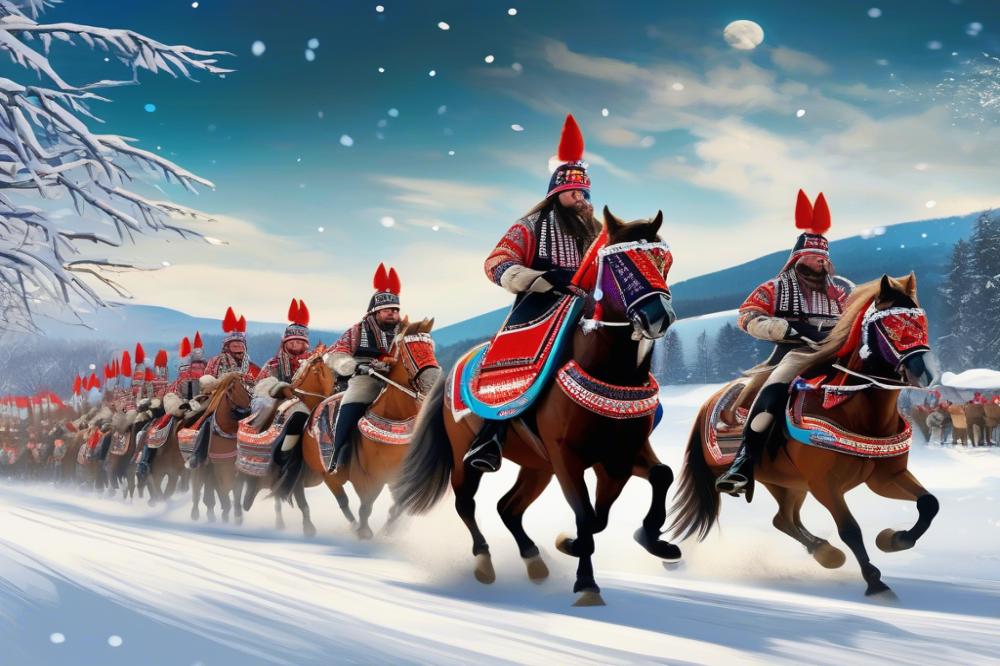The Significance of Horses in the Bulgarian Horses-in-the-ritual-dances-of-indigenous-south-american-tribes”>Kukeri Festival
The Kukeri Festival stands as a vibrant celebration in Bulgaria, rich with tradition and cultural pride. This event occurs every year, often in early spring, and it brings together communities through lively rituals. Participants dress in elaborate costumes, donning masks that represent various mythical creatures. These costumes are not just for show; they symbolize the drive to chase away evil spirits and welcome spring’s renewal.
In this notable event, horses play a critical role. Traditionally, they are viewed as symbols of strength and fertility in Bulgarian folklore. These animals are not merely seen as modes of transportation but as significant participants in the celebrations. Their presence adds a layer of depth to the rituals and reflects centuries of agricultural heritage within Bulgarian society.
Moreover, understanding the customs associated with this festival reveals much about Bulgaria’s societal values. The integration of horses in these traditions signifies a connection to the land and a respect for nature. folklore and myths surrounding these majestic creatures enrich the event, reminding participants of their roots and the community’s shared history. Through examining this festival, one can appreciate the intricate tapestry of beliefs surrounding it and the essential role horses play in weaving that narrative.
The Kukeri Festival: A Cultural Overview
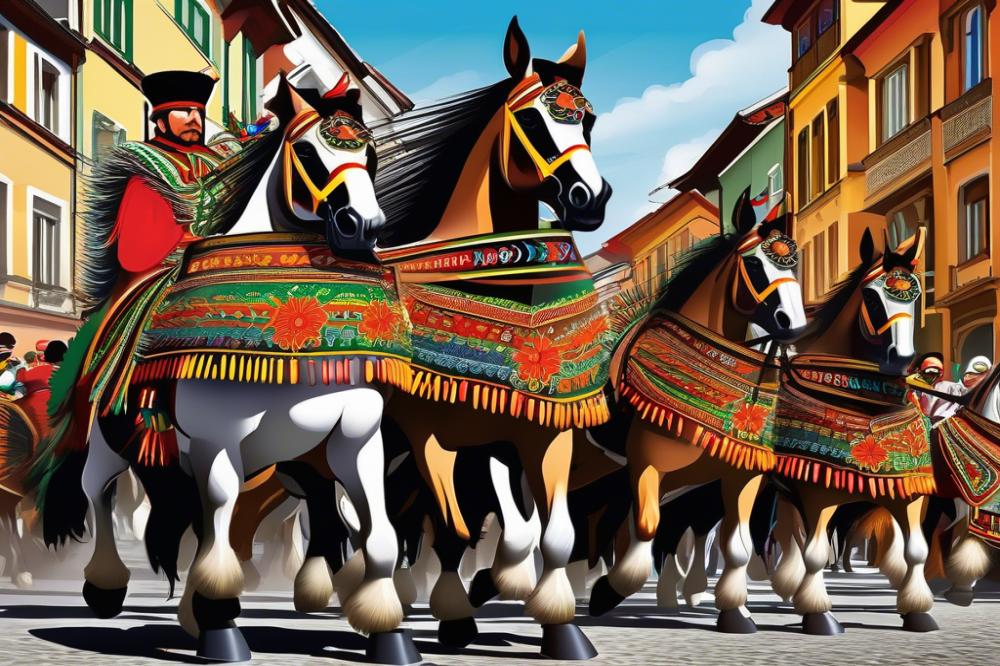
The Kukeri Festival is a colorful and lively celebration held in Bulgaria. It has deep roots that date back to ancient times. Initially, it aimed to drive away evil spirits and ensure a good harvest. Communities come together every year, showcasing their rich folklore and traditions through this event.
Various rituals accompany the festivities. Participants known as Kukeri wear elaborate costumes and perform a series of dances. These dances mimic traditional customs. They also represent the cycle of life, death, and rebirth. Many believe these performances bring fertility to the land. The Kukeri ring bells attached to their costumes, which creates a loud, rhythmic sound that resonates throughout the village.
Costumes stand out as one of the festival’s key components. Each outfit is intricate and personalized, often featuring animal motifs. These designs symbolize strength and protection. Masks made from wood, leather, or wool are common. They portray a range of characters from folklore, including mythical creatures. Wearing these disguises serves to ward off malevolent forces.
Folk traditions play a vital role as well. Young and old unite to keep these customs alive. The beating of drums and lively music add energy to the atmosphere. This event isn’t merely a spectacle; it connects generations. Families share stories about the significance of the costumes and the rituals observed.
The combination of music, dance, and vibrant attire creates an unforgettable experience. Visitors from around the world are drawn to the celebration. They witness the unique cultural heritage that embodies Bulgaria’s spirit. It highlights the importance of community, folklore, and ancestral wisdom.
Horses in Bulgarian Folklore
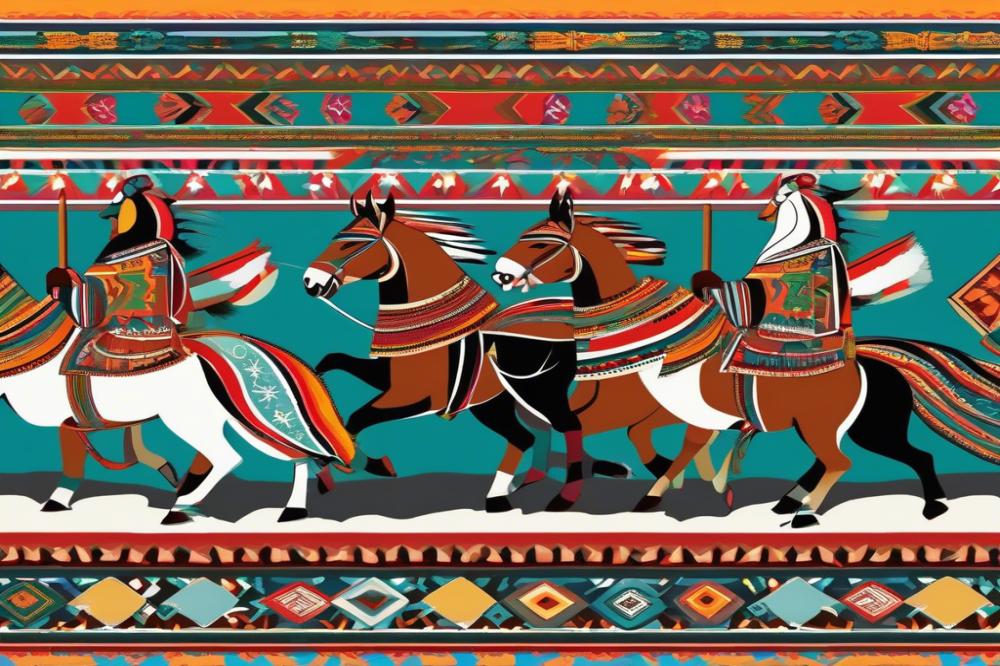
Horses hold an important place in the stories and traditions of Bulgaria. Their presence can be traced back to ancient times, reflecting both their practical and symbolic roles. Many folktales feature horses as noble creatures, embodying strength and grace. In these tales, they often serve as companions to heroes, reflecting the deep bond between humans and these animals.
Within Slavic paganism, horses are frequently associated with fertility and abundance. They are seen as vital to agricultural life, representing the cycle of planting and harvest. Rituals often invoke horse spirits to bless the land. This connection reveals the horse’s role as a symbol of life and prosperity within the community.
Another essential theme surrounding horses is strength. In many rituals, they act as protectors, warding off evil spirits and bringing good fortune. During the Kukeri Festival, the use of horse imagery aligns with these protective themes. Dressed in ornate costumes, participants often mimic the movements of horses to embody their powerful qualities.
Horses also link to the earth and natural elements in Bulgarian mythology. They are believed to connect the human realm with the spirit world. Their strength is viewed as a bridge, allowing for communication between these two spaces. This connection highlights the deep respect Bulgarians have for the natural order and its mystical aspects.
In folklore, the imagery of horses frequently appears in tales of transformation. Characters can transcend their limitations, often with the help of a horse. This signifies personal growth and the journey toward greater understanding. Themes of liberation are evident, as well as the realization of one’s potential.
The bond between horses and humans is celebrated in various forms of art, literature, and oral traditions. Throughout history, they have inspired songs and stories that emphasize loyalty. These artistic expressions keep the significance of these magnificent creatures alive in the hearts of the people.
Rituals Involving Horses During the Kukeri Festival
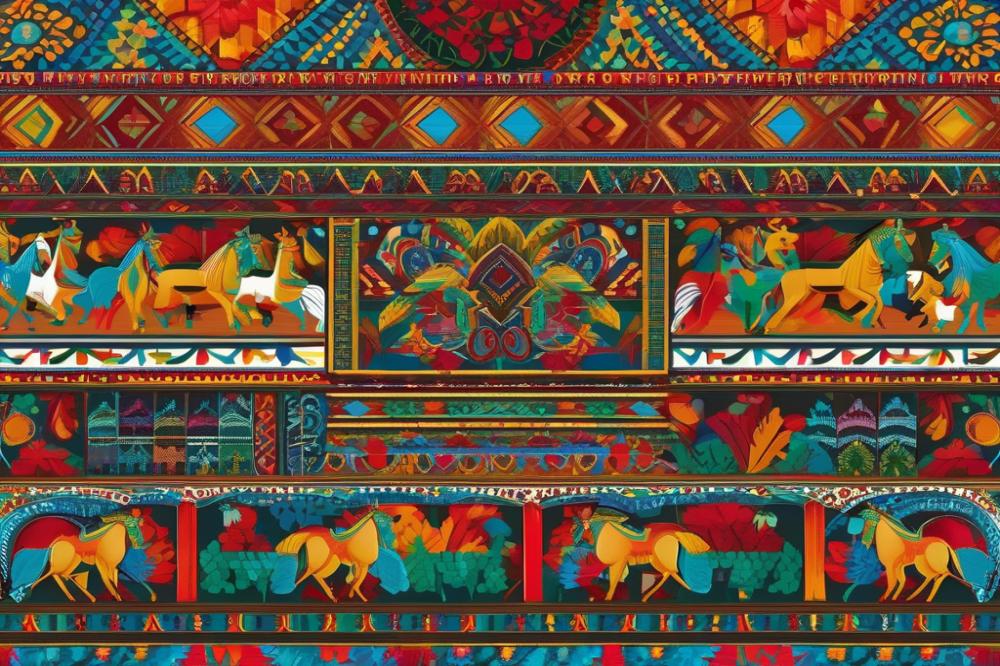
The Kukeri Festival is filled with vibrant traditions. Horses are a significant part of the celebrations, adding a sense of majesty and strength to the festivities. One of the most notable rituals is the horse-led procession. Here, riders dress in ornate costumes, guiding their horses through village streets. The sights and sounds capture the attention of everyone nearby.
During these processions, horses symbolize power and vitality. Their presence invokes a connection between the human participants and the spirit world. Villagers sing and dance alongside these magnificent animals, demonstrating community strength. This bonding forms lasting memories that celebrate their ancestry. It’s a time when people come together, sharing joy and laughter.
Traditional practices regarding horses are deeply rooted in history. Certain communities perform special blessings for the animals. Rituals completed before the event focus on purifying horses to ensure they bring good fortune. Participants also prepare traditional foods for their animals, treating them with respect and care. This care highlights the vital role horses play in village life.
The bond between the horses and the community goes beyond mere appearance. When riders and horses move as one, they enhance the atmosphere. Observers often comment on the harmony they witness. Each trot and gallop fuels the festive spirit, making this event feel alive and energetic. Altogether, these rituals reinforce the importance of both horses and community during this time of celebration.
Winter Traditions and the Role of Horses
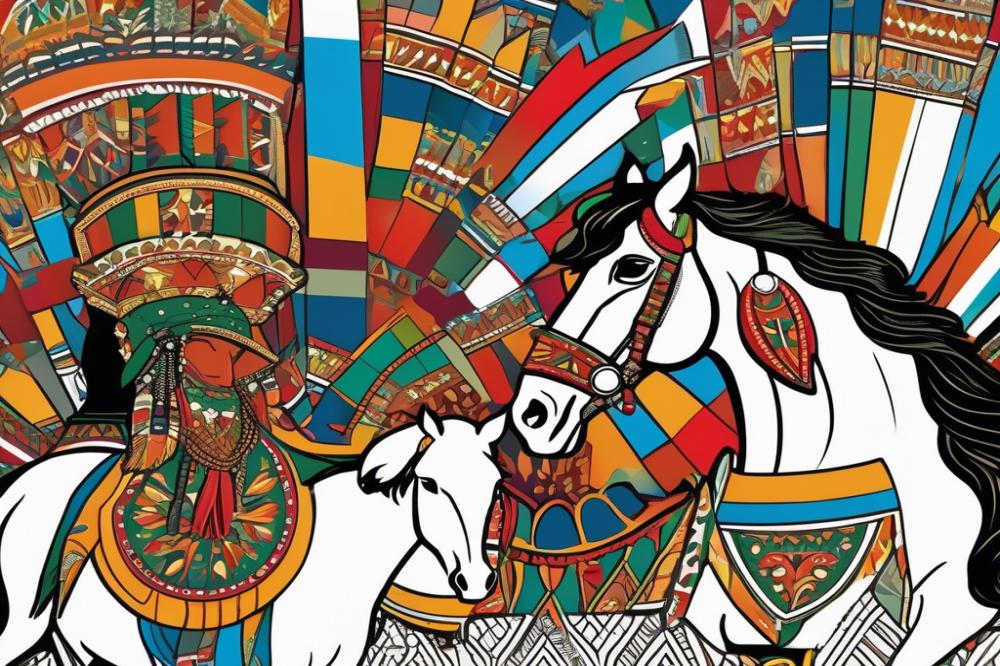
The Kukeri Festival takes place during the cold winter months, a time rich with traditions in Bulgaria. As families gather to celebrate, they also look back at the agricultural practices that define rural life. In many villages, horses play a crucial role during this season, aiding in both farming and festivities.
Traditionally, horses were essential for transporting goods, plowing fields, and even participating in local customs. During winter, these animals were seen as symbols of strength and endurance. Their presence in celebrations highlights the bond between people and their workhorses, underscoring the importance of agriculture in the community.
As part of the winter festivities, the festival symbolizes the hope for renewal. Participants don elaborate costumes and masks, creating a vibrant spectacle in the snowy landscape. This lively gathering enhances communal spirit while reassuring everyone that spring is on the horizon.
While Kukeri performers take center stage, many families also cherish their horses. This connection brings a sense of nostalgia and pride. It reminds everyone that as the winter season fades, life will bloom again. Each hoofprint in the snow echoes the cycle of nature, reinforcing cultural values and agricultural heritage.
Events like the Kukeri Festival celebrate more than just winter tradition. They serve as reminders of the interconnectedness of life, work, and hope. Horses, moving gracefully amidst the festivities, symbolize resilience during the harshest months. They embody the spirit of renewal that all communities yearn for as they anticipate the arrival of spring.
Community and the Kukeri Festival
The Kukeri Festival serves as a powerful tool for bringing people together. This event creates bonds between community members, encouraging interactions that might not happen otherwise. When folks come together for this celebration, they share laughter, stories, and experiences. Such moments strengthen ties and build social cohesion within the group.
Horses play a vital role in this festival. They act as a bridge between participants, drawing people closer. Riders often parade through the streets, creating a spectacle that delights onlookers. Their presence fosters a sense of unity, as both horse and rider prepare for the festivities. This shared experience brings a communal spirit that highlights the importance of belonging.
Connections formed through shared experiences with horses deepen the cultural essence of the event. Everyone participates in training, grooming, and caring for the animals before the festival begins. These activities bond families, friends, and neighbors. Together, they engage in discussions about traditions, stories, and the significance of the festival. In these conversations, the cultural fabric becomes rich with meaning.
Even those who may not own horses feel part of the excitement. Villagers gather to watch the parades, cheer for their favorites, and enjoy the festive atmosphere. The horses, with their elegant movements, captivate audiences. As a result, people of all ages come together, reinforcing community ties through shared admiration for these majestic animals. Social connections deepen, and the festival transforms into a powerful symbol of local culture.
Final Thoughts on the Role of Horses in Kukeri
The Kukeri Festival highlights the vital role horses play in Bulgarian culture. These animals are not merely part of the ceremony; they embody tradition and history. By participating in this festival, horses symbolize strength and vitality, connecting people to their ancestral roots. The lively presence of horses adds depth to the rituals, enriching the overall experience for both performers and spectators.
In many societies, horses have deep significance that transcends practical uses. Across various cultures, they often represent freedom, power, and connection to nature. Folklore from different regions frequently weaves horses into stories of heroism and adventure. This shared importance suggests a universal appreciation for these majestic creatures. They serve as a reminder of humanity’s bond with the animal kingdom.
Celebrating traditional practices like this festival helps preserve our heritage in a rapidly changing world. As modern life becomes more detached from nature, recognizing the value of such customs is essential. Communities grow through these rich traditions, and they deepen connections among people. Preserving the Kukeri and its elements, including the horses, is crucial for future generations. Let’s take action to honor and protect our diverse cultural legacies.

